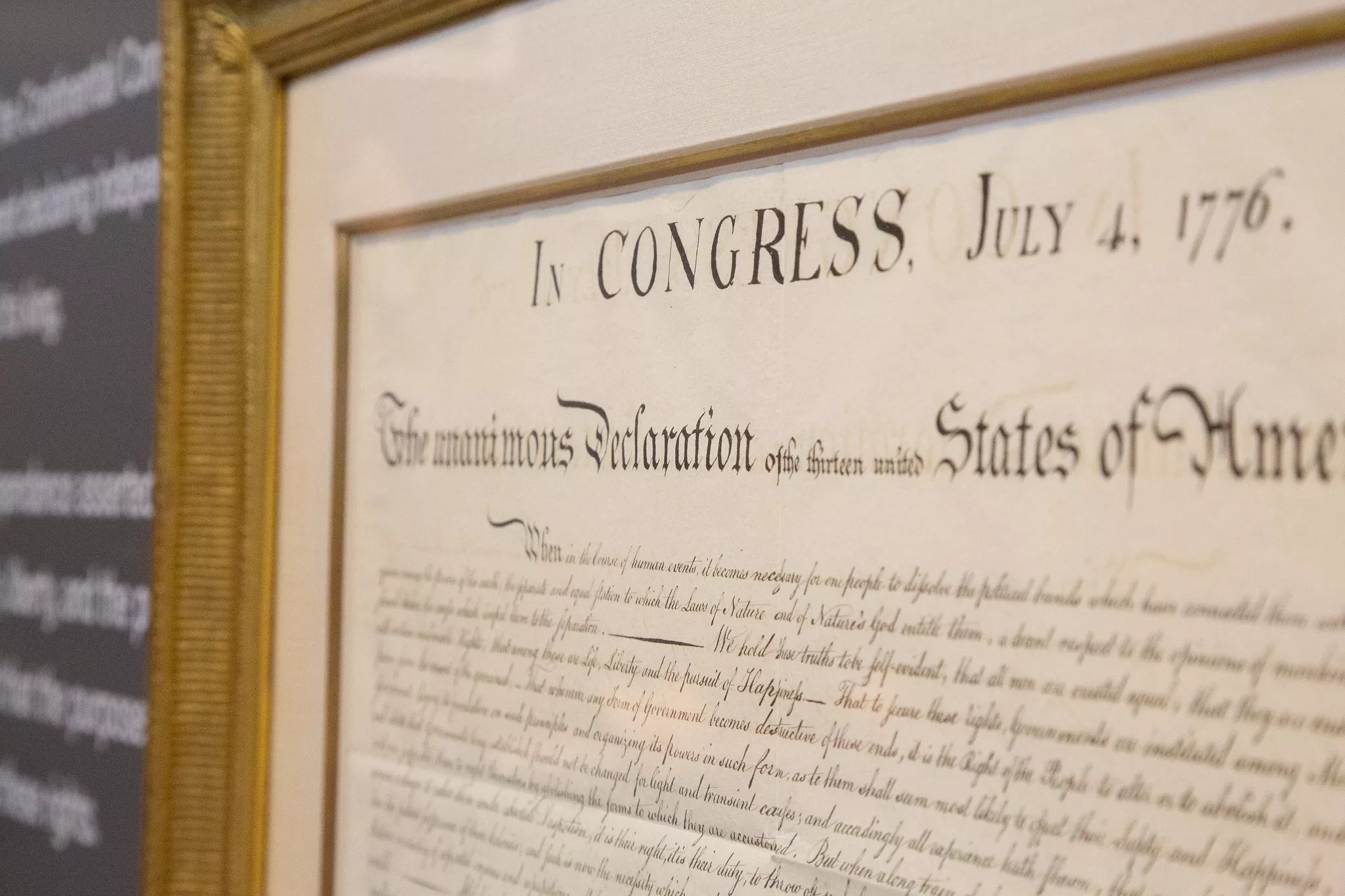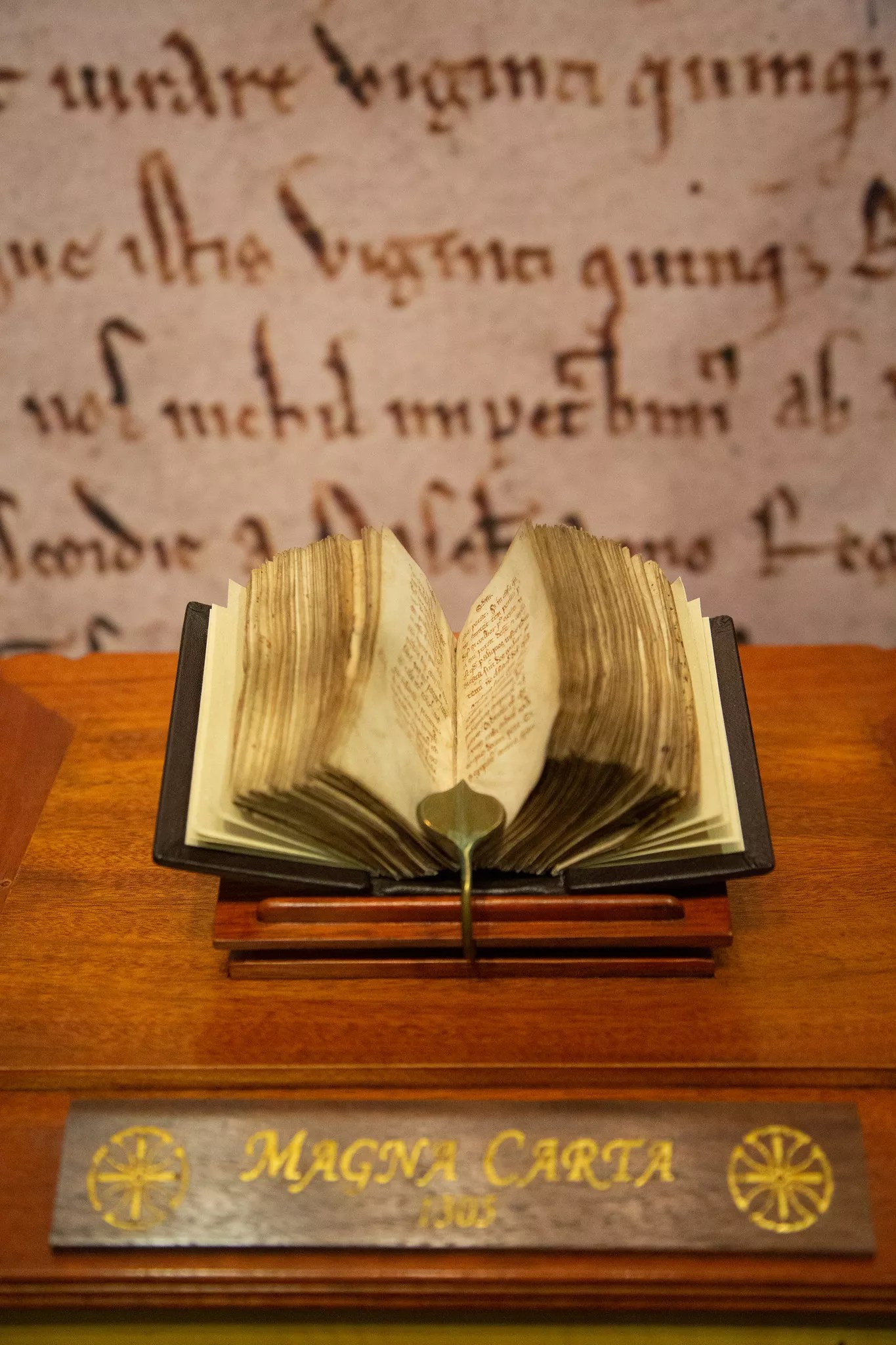
Andrew Kaufmann/George W. Bush Presidential Center

Audio By Carbonatix
Americans probably hear or use the word “freedom” at least once a day. Have you ever stopped to think about the concept or even the definition of freedom? How do you define it even when it clearly has limitations?
Chris Walsh, the director of freedom and democracy for the George W. Bush Presidential Center and Institute, has been thinking about those questions since he took the job. He’s spoken with activists and freedom fighters around the world about the fundamental foundations of what it means to be free.
“A lot of our programming supports activists around the world,” Walsh says. “One of our colleagues here, Joseph Kim, is a North Korean refugee who’s one of the first people to ever escape the North Korean dictatorship. It’s a great success story about how he became an American citizen and how he’s trying to give back to American through the Bush Institute. Here, we’re advocating those issues, too, and think this exhibit highlights why those things are important.”
The library recently opened a new exhibition called Freedom Matters that examines and presents the foundations of different democracies throughout history and around the world. It also includes some rare and historic preserved copies of documents and books that helped build those foundations such as the Magna Carta, the Declaration of Independence and the Emancipation Proclamation. These items are on loan to the presidential library from the private collections of former Smithsonian and John F. Kennedy Center for the Arts chairman David Rubenstein and Dallas real estate developer Harlan Crow and will remain on display until the end of the year.
The exhibition starts in a darkened space where visitors can hear the words of activists and citizens from around the world defining their perspectives on what it means to be free. Walsh noted the exhibition’s opening experience includes words and thoughts on how to protect human rights from people like former Secretary of State Condoleezza Rice and Women Peace Network founder and human rights advocate Wai Wai Nu, who became a political prisoner at 18 when the regime in Myanmar imprisoned her and her family for seven years due to her father’s political opposition to those in power.

British lawyers carried pocket-sized editions of the Magna Carta with them in the 14th century.
Andrew Kaufmann/George W. Bush Presidential Center
The exhibition takes guests through information and interactive displays that lay out the different types of democracies and examines periods in our own history when laws regarding slavery and women’s rights diminished the very meaning of freedom.
Walsh says these examinations will help people “realize that democracy isn’t perfect but it’s good for helping solve challenges and differences.”
The historical artifacts on display may not be the originals but they serve an important purpose by helping inform the nation about changes in rights and liberties, whether they come from a government or a higher power. Some items include pocket-sized editions of the Magna Carta that British lawyers carried around in the 14th century, an 1831 print of the U.S. Declaration of Independence and U.S. Constitution, and a pocket-sized version of the Emancipation Proclamation that Union soldiers gave to slaves to inform them of their rights and freedom.
“Peter Force, the [12th] mayor of Washington, D.C., got permission from the state department to make plates of the Constitution and make copies for himself,” Walsh says. “The great thing about going through the exhibit is we want to encourage conversations in people that come there. The point is to spark conversations and curiosity. People can draw their own conclusions and we encourage them to do so but we lay out the philosophies of freedom and governments throughout history and here’s America’s history and how it goes backwards, forwards and sideways.”
The Freedom Matters exhibition isn’t a celebration of democracy, but a serious examination of it. The historical artifacts may be the exhibition’s main draw but they are meant to evoke deep dives into the granting, establishment and proliferation of the freedoms so many citizens throughout the world may take for granted.
“It’s not all, ‘Rah, rah, democracy!'” Walsh says. “We’re saying we get things wrong and we as a society have to use these mechanisms to support freedom wherever we can.”